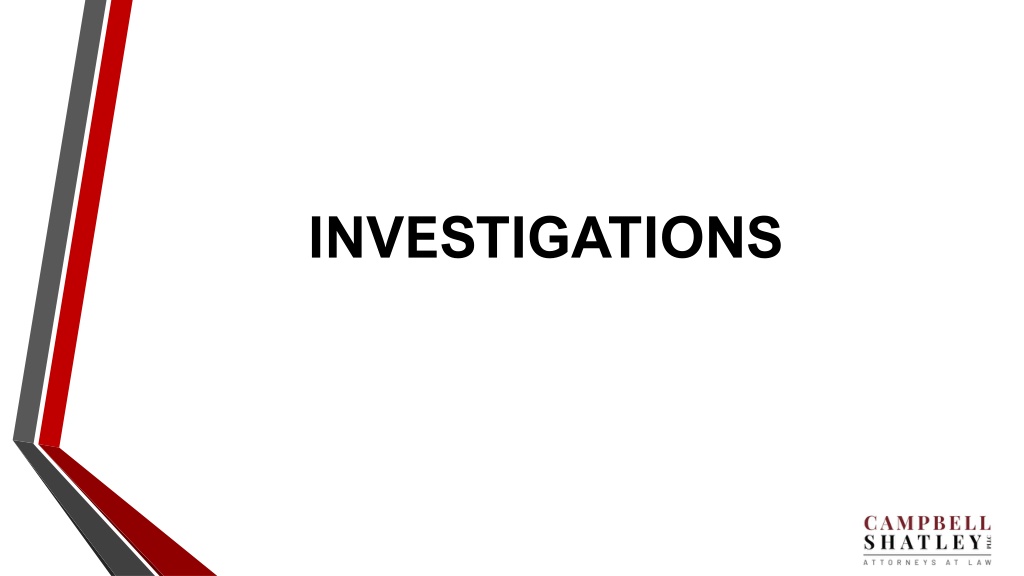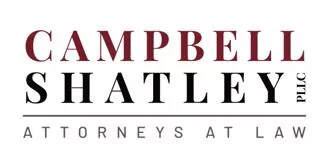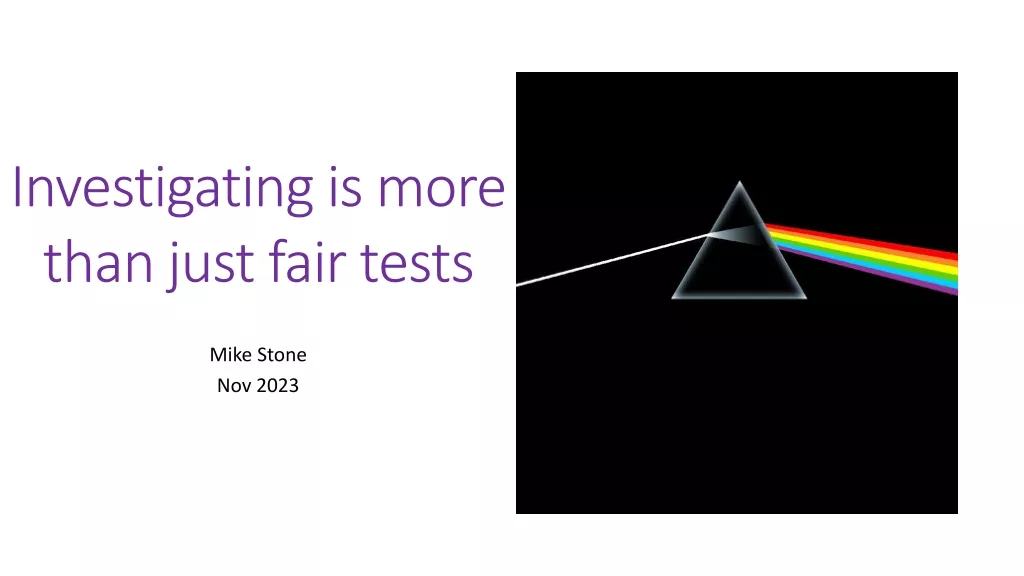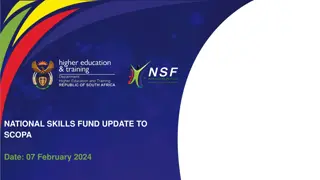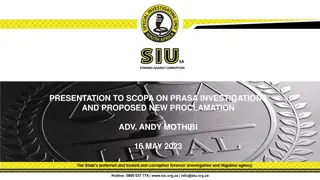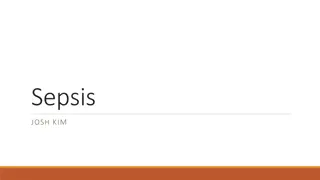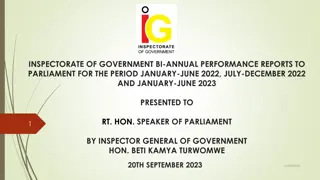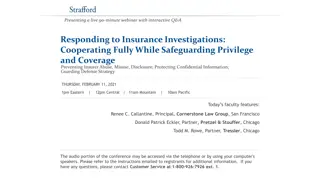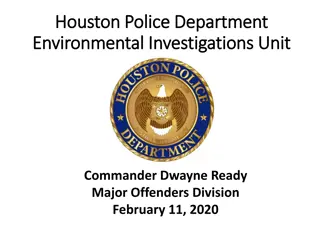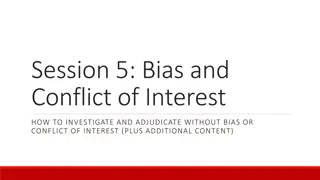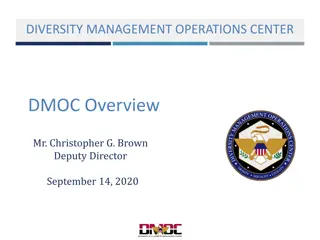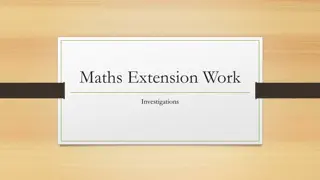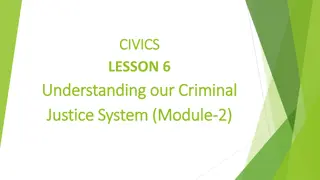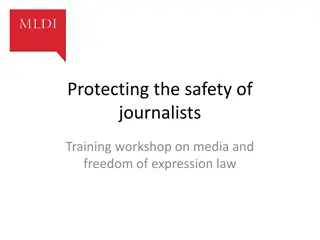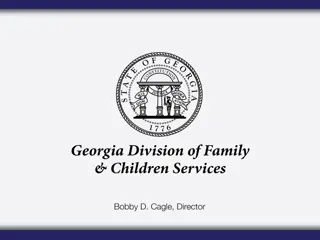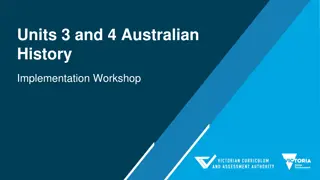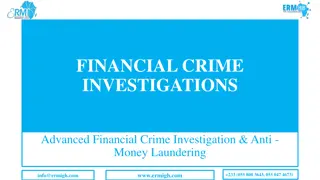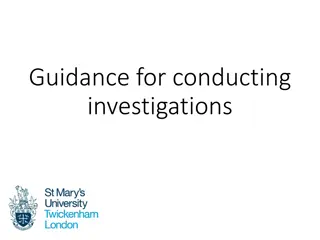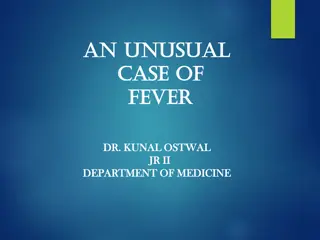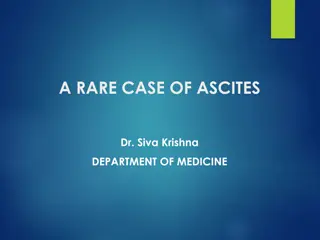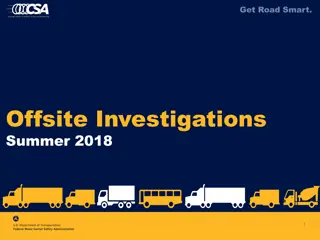INVESTIGATIONS
This content provides an in-depth overview of college investigations related to sexual harassment, including the goal, process, timing, factors, and principles involved. It covers when to investigate, who conducts the investigations, elements of an investigation, intersections with criminal proceedings, evidence collection and analysis, the role of advisors, and the importance of formal complaints and supportive measures for both parties. The content emphasizes the responsibilities of the Title IX Coordinator, trained investigators, and the parties involved in the investigation process.
Download Presentation

Please find below an Image/Link to download the presentation.
The content on the website is provided AS IS for your information and personal use only. It may not be sold, licensed, or shared on other websites without obtaining consent from the author. Download presentation by click this link. If you encounter any issues during the download, it is possible that the publisher has removed the file from their server.
E N D
Presentation Transcript
Goal of the Investigation To reach a determination as to whether a Respondent violated one or more College policies prohibiting sexual harassment.
OVERVIEW When to investigate? Who investigates? Elements of an Investigation Intersections with Criminal Investigations/Proceedings Conducting the Investigation Collecting & Analyzing Evidence/Relevance Advisors Written Investigative Report
WHEN TO INVESTIGATE After the receipt of a Formal Complaint by the Title IX Coordinator. Title IX Coordinator appoints a trained investigator & provides written notice to the parties about rights and responsibilities during the investigation.
WHEN TO INVESTIGATE Do the allegations as stated constitute a violation of College policy? (Including whether the alleged conduct occurred in an education program or activity, located within the US, of which the College has actual knowledge.) If yes, does Complainant want to pursue a formal investigation? o If yes, investigate. o If no, are the allegations of the type that the College must investigate regardless of Complainant s wishes?
WHEN TO INVESTIGATE Factors to consider if a Complainant does not want an investigation: The more serious the conduct, the higher need to investigate (e.g., one instance of rape). The more frequent the conduct, the higher the need to investigate (e.g., widespread behavior against multiple victims).
May only be initiated/submitted by Complainant or Title IX Coordinator. Should include: Name and address of Complainant Description of alleged sexual harassment Request to investigate Signature of Complainant FORMAL COMPLAINTS
Both parties have opportunity to have Advisor present in any meeting, interview, or decision-making process. Evidence must be evaluated objectively. GENERAL EQUITABLE PRINCIPLES Supportive measures should be offered to both parties. Respondent is presumed not responsible for alleged conduct. Written notice of any meeting, interview, or hearing must be provided to parties. Burden of proof and gathering of evidence rests on the College.
WHO INVESTIGATES Who? Title IX Coordinator cannot conduct the investigation but still oversees the process.* Title IX Coordinator must be completely informed of any complaints. Conflicts of interest? Title IX Coordinator must choose a neutral investigator. *This may change when the new regulations are adopted.
ELEMENTS OF INVESTIGATION Purpose: A fact-finding process to determine 1) whether the Respondent violated College policies prohibiting sexual harassment; and if so, 2) what steps the College will take to end the sexual harassment/ violence, eliminate the hostile environment, and prevent recurrence. Investigations must be prompt, thorough and equitable. Investigation may include (but is not limited to): Conducting interviews with the parties and witnesses. Reviewing law enforcement investigation documents. Reviewing student and/or personnel files. Gathering and examining relevant documents and evidence.
ELEMENTS OF INVESTIGATION Title IX Coordinator: Written Notice of Investigation to Parties Sufficient details to allow parties to respond and prepare for initial interviews; Identity of the parties involved; Conduct alleged to be sexual harassment; Date and location of alleged incidents; Statement that Respondent is presumed not responsible and responsibility determination is made at conclusion of process; Parties right to an Advisor; Parties right to review evidence; and Notice that College prohibits making knowingly false statements or submitting false information
Title IX does not require the College to report alleged criminal incidents to law enforcement INTERSECTION WITH CRIMINAL INVESTIGATIONS College should inform alleged victim of their right to make a criminal report and not dissuade an alleged victim from making a criminal report. Evidence obtained in a criminal investigation may be used by the College as source of fact-finding.
College may not wait for the conclusion of a criminal investigation to act under Title IX. However, the College may need to delay an investigation during the law enforcement/ criminal investigation. INTERSECTION WITH CRIMINAL INVESTIGATIONS If the College does delay, the College still must offer supportive measures to the parties. The College should update the parties on the status of the matter during any delay.
OCR Advice: The College should seek a Memorandum of Understanding (MOU) with local law enforcement regarding concurrent criminal and Title IX investigations. INTERSECTION WITH CRIMINAL INVESTIGATIONS The MOU must allow the College to meet its Title IX requirements. The MOU must also recognize student FERPA-based rights (i.e., no sharing of student information from the College to law enforcement unless properly subpoenaed).
CONDUCTING THE INVESTIGATION Investigations must be prompt, thorough, and equitable. College aims to bring all investigations to resolution within 30 business days from the date the Title IX Coordinator determines an investigation should commence. Extensions of this timeframe allowed for "good cause": Complexity or number of allegations; Severity and extent of alleged misconduct; Number of parties, witnesses, and other evidence involved; Availability of the parties; A request by a party to delay an investigation; Effect of a concurrent criminal investigation or proceeding; Intervening holidays, College breaks, or other closures; Good faith efforts to reach a resolution; or Other unforeseen circumstances.
Investigation Hack #1 At the beginning of the investigation, create a system to organize evidence to assist in final report, including: A list of potential witnesses An inventory document for all evidence collected, including: o Documents o Audio/Video Recordings o Messages o Other artifacts from the investigation Note taking document Document summarizing witness interviews Create two timeline: o Investigation procedure timeline o Timeline of events relative to the complaint)
CONDUCTING THE INVESTIGATION Conducting Interviews Typically, the Complainant, Respondent, & any witnesses A party s Advisor may be present during an interview Written Notice to the parties Recordings Interviews may be recorded by the College Parties may refuse to participate.
HYPOTHETICAL - INTERVIEWS You have interviewed the Complainant and Respondent during your investigation. You left two voicemails for Witness #1 to schedule an interview but have not heard back. You were scheduled to meet with Witness #2 last week but received an email that they had a test and needed to reschedule and that they were going on a trip out of state for a week after that. How should the investigator proceed?
CONDUCTING THE INVESTIGATION Advisors: During investigation o Role limited to advice, guidance, and support for a party o May be present at all stages of investigation but may not participate/advocate in the interview o Must maintain privacy of records shared o Expected to refrain from interfering with investigation Discipline: o One warning o Advisor who continues to disrupt or overstep limits of role will be asked to leave o Title IX Coordinator will determine whether they may return or be replaced
Interview Best Practices Take your time and be thorough. (Time, interviews, seriousness of the matter builds pressure.) Always get the WWWWHW Be thorough in who you speak to and what you ask them. Do not solely rely on written statements from witnesses. Do not be afraid to conduct follow-up interviews with the parties/ witnesses (i.e., interview same person more than once) Do not make promises to parties about the potential findings of your investigation or whether someone will have to testify at a hearing.
Investigation Hack #2 Summarize interview notes immediately after the meeting. It may help some people to dictate the notes into your phone recorder and then transcribe later).
Witness/Party Interviews Interview witnesses separately Ask a lot of questions Start broad and make questions narrower don t lead a witness (until you need to) "Tell me what happened yesterday" v. "I know what happened yesterday, and want to hear it in your own words" Come back to clarify, multiple times if necessary Ask specific question to clarify and test credibility Using a prepared list of questions is fine but don t be afraid to deviate from the list. Ask follow-up questions (again, deviate from the list of prepared questions)
Investigation Hack #3 Witness Interviews Be a blank slate: never assume you know anything! When interviewing the parties, always corroborate what they put in writing (ex. the formal complaint document); what they told the Title IX Coordinator, and what they told other witnesses. This tests credibility and is a regular interview technique to gain further information.
The Respondent Interview Give the Respondent the opportunity to tell his/her side and to respond to all allegations Don t "beat around the bush" with questions that are too broad ex. "Tell me what happened on April 5th" Instead: "It is alleged on April 5thyou approached the complainant and . Tell me what happened?" Be upfront with the Respondent on the allegations and other important evidence Know what to release and what to hold back Hold back facts to determine if Respondent can corroborate them
Respondent Interview Do not be afraid to ask the hard questions (ask leading questions when necessary) Did you/employee have a sexual relationship with the Complainant? Did you ask the Complainant to have sex with you? Do not let assumptions stop you from asking a question?
HYPO: Faculty Accused of Sexually Harassing Student Via Disappearing Text Messages Have you sent personal text messages to any of your students? Have you texted with any students? Are your text messages personal or class related? Which students? When? How many times? (Break this down by each student.) (Assume Employee doesn t mention the student in question.) Have you ever exchanged text messages with Jamie Fisher?
Employee Accused of Texting with a Student; Allegation that the Text May Have Been Inappropriate Jamie has provided screen shots of the following text messages? Did you send these messages? o Why would you send Jamie text messages about . . . ? o Why would you send Jamie text messages late at night? o Have you had any physical/romantic contact with Jamie? o Have you met with Jamie outside of class? o Other than sending Jamie text messages outside of class, any other contact outside of school? o May I see whether these messages are on your phone? Now?
Employee Accused of Taking Secret Photos of Female Students? Have you ever taken pictures of students in your class with your personal cell phone? When/Why? Can you show me your phone? Can I see these photos? If you re not going to allow me to see these photos, I am going to think there is something you are hiding and that concerns me.
Collection and Preservation of Evidence Collect and preserve all evidence in an investigation. E-mails, text messages, videos, recordings Employee Documents contracts, evaluations, personnel file material Written Statements dated, signed, sealed and delivered! o Focuses on Who, What, When, Where, How, and Why Interview Notes (yes your notes) Everything!!!!! Consider that all evidence will be turned over to the parties.
PRESERVATION OF EVIDENCE Have a note taker in interviews if you are not a good note taker. To record, or not to record, that is the question. Claims can take many years to resolve. Evidence must be carefully maintained until claim is concluded. When your lawyer asks you for "everything" make sure everyone knows what that means.
EVIDENCE Investigator should objectively evaluate all physical, documentary, or other evidence as appropriate and available.
STANDARDS OF EVIDENCE Standard of Evidence Level of Proof Beyond a Reasonable Doubt Highest standard of evidence; used in criminal law; facts of the case lead to only one reasonable conclusion Clear and Convincing Hybrid; proof that a particular fact or event was highly and substantially more likely than not to have occurred Preponderance of Evidence Civil standard; proof that a fact or event was more likely than not to have occurred
EVIDENCE No person acting on behalf of the College may rely upon or otherwise use questions or evidence that seek disclosure of information protected under a legally recognized privilege, unless the privilege is waived. Attorney-Client Healthcare Provider-Patient (G.S. 8-53, -53.3, -53.5, -53.13) Agents of rape crisis centers and domestic violence programs- Victim (G.S. 8-53.12)
Evidence is generally considered relevant if it has value in proving or disproving a fact at issue: Alleged policy violation A party or witness credibility The investigator makes initial relevance "decisions" by including a summary of evidence in the investigation report NCE But relevance is ultimately up to the decision-maker, who is not bound by the investigator s judgment
WHAT IS CREDIBILITY? Credibility assessment may not be based on a person s status as a Complainant, Respondent, or Witness Accuracy and reliability of information Primary factors: corroboration and consistency Avoid too much focus on irrelevant inconsistencies Source + content + plausibility
HYPOTHETICALS- ISSUES OF RELEVANCY The Investigator interviews one of the witnesses to the alleged incident identified by the Respondent. At the end of the interview the Witness reads back through their text messages with the Respondent on the evening of the incident. Are these text messages relevant? What should the investigator do? During an investigation, the Complainant shows the Investigator copies of social media posts made by the Respondent on the evening of the alleged incident that have since been deleted by the Respondent. Are these posts relevant? What should the investigator do? In your interview with the Respondent, the Respondent denies leaving campus with the Complainant at 11p.m. What can the investigator do to investigate this assertion?
INVESTIGATIVE REPORT At the conclusion of the Investigation, Investigator must provide all parties equal opportunity to review evidence obtained during the investigation that is directly related to the allegations even evidence upon which the College does not intend to rely. Parties may submit written responses to the Investigator regarding the evidence obtained (generally a 10-day timeline). The Investigator must receive and consider the parties written responses, including whether to conduct further interviews, prior to the submission of the Investigative Report. Investigator submits the Investigative Report to the parties that "fairly summarizes relevant evidence," including a summary of the allegations and responses; a summary of investigative steps taken; and a summary of the evidence relevant to a determination.
INVESTIGATIVE REPORT CONTENT 1. Summary of Allegations/Response 2. Summary of Procedure, including investigative steps 3. Cite the Standard of Review 4. Summary of Evidence a. Summary of testimony/interviews include credibility b. List and explanation of documentary evidence 5. Analysis of the evidence 6. Conclusion 7. Recommendations (optional)
REPORT ANALYSIS Hack #5 Apply the language in policy to the findings What is "sexual harassment" and do your findings support a conclusion the Respondent violated the policy Ex. College policy states that sexual harassment is defined as. . . . I find the Respondent's actions of. . .constitute sexual harassment under college policy and Title IX. Therefore, it is more likely than not that the Respondent s actions violate Title IX and college policy.
INVESTIGATIVE REPORT CONCLUSION Typically, there is going to be a menu of options that will be available to the investigator in finalizing their report: Option 1: Respondent committed some or all of the alleged sexual violence/misconduct. Option 2: Respondent did not commit any of the alleged sexual violence/misconduct. Option 3: Evidence is inconclusive (In other words: "I can t figure out who is being truthful.") o May prevent a remedy but does not prevent the College supporting the Complainant.
RECOMMENDATIONS Recommend discipline or referral to appropriate disciplinary person/ body, if appropriate Ex. This Investigation Report should be referred to the Dean of Students to make a final determination. Ex. Although I made a finding that the Respondent did not violate Title IX, the Respondent's actions violate the college s code of conduct and the Respondent should be referred to the VP for appropriate consideration of discipline. Recommend other potential supportive/safety measures No-contact order Counseling
